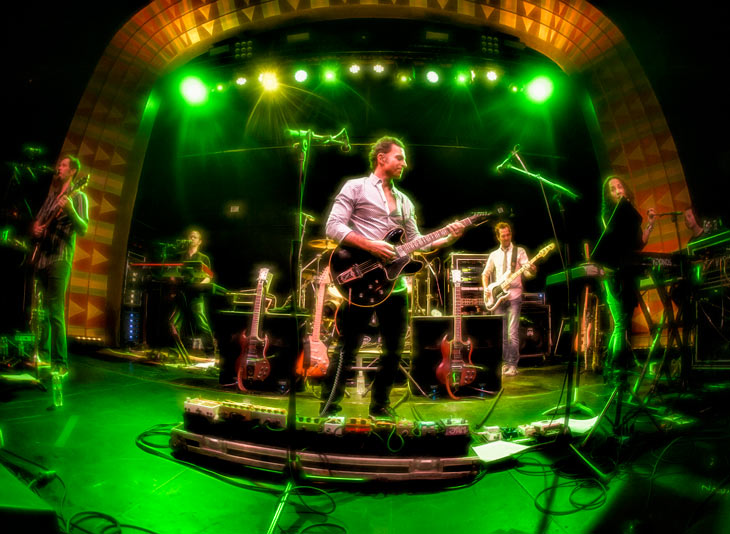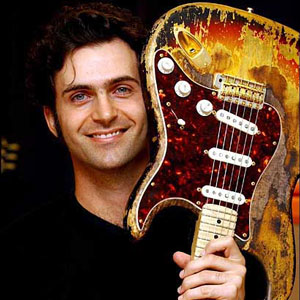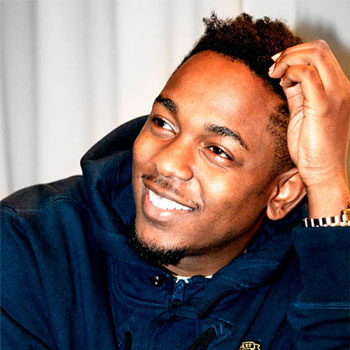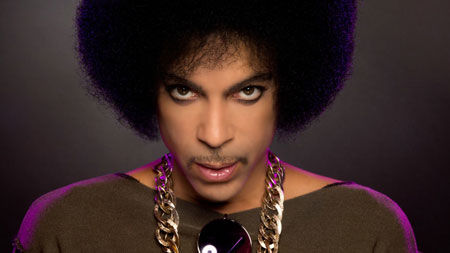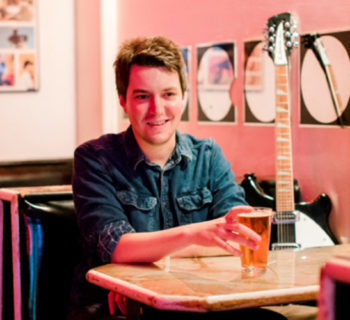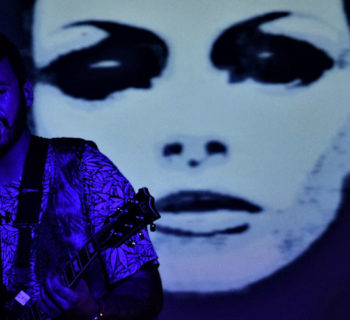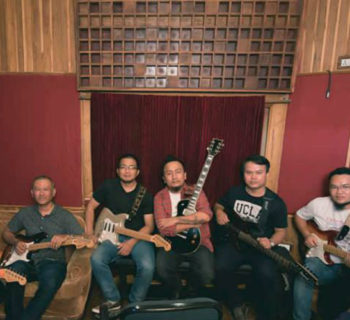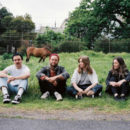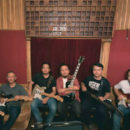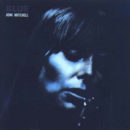Dweezil plays Dweezil.
Dweezil Zappa talks about his new album, Frank and the state of music.
In his time, Frank Zappa was too musically sophisticated for the average listener raised on a steady diet of AM radio and three minute songs. His ability to switch keys and time signatures, borrow from classical and jazz at will, insert insanely difficult musical passages, all with a perfect sense of the avant-garde, was breathtaking.
His own musical taste ran from Varèse to Stravinsky to Johnny Guitar Watson. His bands were the best musicians of the time and often Berkeley and Julliard trained. His auditions were legendary in their brutalness. These were the musical big boys, and he didn’t fuck around.
Dweezil Zappa, the gifted progeny of Frank understands this. His Zappa Plays Zappa show has toured for the past 10 years, regenerating his father’s compositions and playing them with mind-bending precision and dedicated accuracy. Dweezil’s talent lies in an exquisite ear and monster guitar chops. As he doesn’t read music, the entire show is performed from memory.
Guitar player, bandleader, composer, husband and father, Dweezil Zappa is every bit his own man. Recently, he sat down with Rawckus and talked with us about his new album Via Zammata, his father Frank, and the state of the music business today.
So it’s an interesting time as far as the business model of the music industry, because your record is not connected to a record company, right?
Dweezil: Yes, but oddly enough, because of the Pledge Music campaign, I ended up talking with some distribution companies. My initial idea for this was “I just want to make a record.” I didn’t know what kind of expectations there would be for it or whatever. As it kind of got on its feet, people were saying good things about it and we were having fun making it. It was a “Well, let’s see if we can get this to as many people as we can.”
I’m trying to see if there is a way to reach a broader audience. It’s kind of an experiment because either it will get a little bit more attention than I can do myself, or it won’t. Then I know I can just do it myself.
So this is going back to your dad’s model when he started Barking Pumpkin. He would just make those records himself in the studio, and then he would have distribution deals with the larger companies. Correct?
DZ: Yes, that’s how it worked. He had his own label so he could release what he wanted, but he had distribution deals.
It was harder then because you had to print a lot of stuff, and it costs a lot of money to make all the products. Especially vinyl; it isn’t something that can stand sitting around in warehouses unless the conditions are just right. So you can have a bunch of warped vinyl that took money to make, but it’s useless. And then there were all the other issues. Say you were ordering 10,000 copies of something, but they actually made 5,000 extra they didn’t tell you about, and they make money on that.
Then they go out the back door?
DZ: Yeah. That’s standard operating procedure for the record company. But it was probably at least one half was the correct order but they made at least as many that they didn’t tell you about.
That kind of stuff you can’t do in a digital sense. So if you have a distribution deal for just a digital release, that’s new territory for me. That’s kind of the bulk of what this one is going to be. I don’t know how many I’m going to keep printing in terms of CDs. We’ll have to judge the market, because I don’t want to make 10,000 and then have 8,000 sitting around. You know what I mean? But the demand could be totally different than what I expect.
Do you plan to tour behind the record? Or are you going to just see what is going on with demand as you said? (Tour dates have been announced for May 2016)
Dweezil: Well, the whole thing is really up in the air. We are rehearsing some of the material now, because I have a show that I am doing that’s specifically my own in London in October. We have to get ready for that and see how that goes, then see what we can do as far as touring.
It really remains to be seen as to whether or not the audience that comes to see Zappa Play Zappa would really come to see my own show. If that is the case, then great; but if not, then it’s baby steps to build it to there.
When you first started booking the Z.P.Z. tour, the promoters weren’t sold on that, right?
DZ: Right.
And they wanted some standard songs to play or the old band members?
DZ: They wanted an alumni circus. They wanted it to be just everybody that Frank ever played with, but I just wasn’t interested in that. We gave them a little bit of a compromise, and I invited three people that I thought would be good for the thing. It ended up working, but my original goal was that I wanted a younger band to be playing the music.
The thing is, we started 10 years ago when Frank’s core audience probably, if they were roughly the same age as him, would have been in their mid-60’s or older. Now ten years later they would be in their middle 70’s or older. Those are not concert goers. So who are the people that are coming to see this now? Like 10 years into it we have seen the age come down, but it is still time to get this music to people in a way that makes it really seem like it is part of the current modern climate.
I guess another backwards way of getting into it would be some of my music, that is written currently, and then see if there is some way to join forces. You know it’s a challenge. I am still trying to figure out the best way to navigate through it all. This music should appeal to teenagers and young people because there is so much awesome stuff in it, yet they don’t know that much about it.
Well the sophistication—and your dad talked about this repeatedly—the musical sophistication of the average American audience is a little bit lower typically.
DZ: I think that has kind of leveled out worldwide. There is still slightly more appreciation in Europe and South America, because they might have a few more arts programs in schools; but the music overall is pretty universal. Wherever we play in the world the people are pretty into it.
At the end of the day, for the music to go into the future, you need a younger audience to get it, to appreciate it, and then to play it themselves. Play it right, not change it.
When people say “Oh, what you really need to do with Frank’s music is modernize it. You got to get some rap versions. You got to get some of this and let people do cover tunes.” I think that is the wrong approach in my opinion.
Speaking of that, how hard was it to find all of your original musicians for the Zappa Plays Zappa? Scheila Gonzalez, Joe Travers and those guys?
DZ: Joe Travers was in my previous band, so I already had him as a drummer from the get go. The idea was to find other instruments to put into the band and people that can handle these roles. We had some ideas of some things that we wanted to do, but we held open auditions and there was a guy that is known for having a list of musicians to go through and he was like “Oh yeah, we can definitely scour music schools and I got my list and we can set up auditions.” I said to him “I bet you will we get less than 20 people that apply.” He said “No way, we will get way more than that!”
We got 17.
Why, just because of the difficulty of the music?
DZ: Yeah that, and because of the work that is involved. People these days want instant gratification; they don’t want to have to work too hard.
Also the audition that was set up was extremely difficult; and that was to make sure people didn’t have some delusional idea of what the gig was. For example, the keyboard part was—if you were coming into audition—you had to transcribe ‘The Black Page” and “Inca Roads.” And we weren’t giving the music to anyone. People have to hear that stuff and figure it out. Aaron Arntz, the keyboarder who got the gig, only had two days to learn it. Two days to learn that, you basically don’t sleep. It’s like 40 hours of transcription. I designed the audition to be such, that if someone was going to put the time in to get it, they would have the aptitude to learn a lot of stuff quickly. That is what I set up for all the main instruments. People had to know how to read.
For Scheila’s audition for multi-instrumentalist, she was going to have to play saxophone, flute, keyboards, and I think she even played clarinet that day. One of the songs was “Peaches En Regalia” and she was going to have to play the different parts on different instruments, but I didn’t specify that you had to do it all in one performance. The thing that was funny was we made these auditions even that much harder because they would come in and they would only get to play to a drummer. So their whole part was completely exposed. They had nothing else to go on. Scheila prepared “Peaches En Regalia,” she had already set up and would switch from one to the other. She had just enough time to switch from one instrument to another. It was almost like a vaudeville routine. I laughed so hard.
The auditions for your dad’s band are mythical. I love that Steve Vai story when he auditioned.
DZ: Yeah, Frank was making him play at all these different time signatures. Steve was like “that’s impossible.” Frank said, “I hear Linda Ronstadt is looking for a new guitar player.” I know that he was always pushing the boundaries for what he wanted to hear. As he got better and better musicians that could play this stuff, he wrote more and more challenging music. By the time that he got to working with the synclavier, then he got anything he wanted because the computer could play it. There is stuff that is unplayable that he wrote. You can’t do it. Some of the pieces that he considered to be unplayable turned out to be playable. Like “G-Spot Tornado” had some bars in it.
That’s a beautiful tune. I love that song.
DZ: Yes. What was crazy was I loved the main melody, so I started learning it on guitar back in 1990. I never learned the fast part in the middle, but I learned the main melody. Frank was like “Well if he’s learning to play this, maybe there are some people out there that are interested in it.” So he ended up playing with the Ensemble Modern, who played that Yellow Shark version, which is the best version of that piece. It got a standing ovation when it was played because it was so tremendous.
I like the story where he liked your presets on your rack mounts, so you went down and got him the same thing.
DZ: Yes. I went down and got him this GT-8—some Roland GT-8 thing—and I put all the same presets into his and he took that on the road. He was using this one guitar that has a pre-amp in it and he can get all this extra sustain from that guitar on these clean sounds. So he was having these cleans sounds that played the same as if you were playing a distorted sound. On that tour he had this really cool clean sound that he played all the time.
A lot of people like that sound. They were thinking it has got to be a boutique whatever, but it was just this Roland GT-8 and his special guitar.
Speaking of guitars, you still have all of his iconic ones, like the Les Paul from “Shut Up and Play Your Guitar”?
DZ: I don’t personally have them, they’re in the studio. But the main guitar, the Baby Snakes one and some other things.
That original SG, wasn’t it built by someone who just put the Gibson logo on it?
DZ: The Gibson, I mean the Baby Snakes guitar…Frank bought the guitar from someone in Phoenix. It didn’t have the electronics that it currently has on it at the time. He was just looking for a back up SG. This guy had one and brought it to the show and Frank bought it for I think $500. But as far as I know that was not a stock Gibson guitar, because it is thinner than a regular Gibson SG.
Yeah, I think that is what I read. That the guy just made it and then brought it to the show and Frank bought it. He played it a lot after that right?
DZ: Yeah, he played it a lot. He put some different electronics on it. It is the one that is in the movie Baby Snakes. I don’t think there is a single electric guitar that didn’t have something done to it.
It seems like not only was his musical knowledge over-the-top, but his skills as an engineer and his skills from the technical aspect was pretty significant also.
DZ: Yeah. I mean he was around and doing stuff basically when everything was being invented. He was pushing the boundaries. “Well if it can do this now, what about this? Why don’t we try this?” That’s all part, like the studio was an instrument to him. That’s what is so cool. He definitely knew a lot. He read a lot of books about acoustic science. When he was working on something he was coming from a scientific aspect and knowing exactly what was happening with the frequency range. He wasn’t just “Oh, let me try this and see what that does. Let’s go with that.”
He’s reading the science behind it. I didn’t know that.
DZ: That’s why his arrangements…Like when you listen to his records you can hear every instrument really, really well. It’s because the way the music is arranged, and then the way it is recorded. The stuff is where it really needs to be. Nothing is masking another part. If it was, he just wouldn’t use it.
In his book (The Real Frank Zappa Book), he was talking about when he was recording the London Symphonic Orchestra, where certain instruments were sitting in the mix. I think the fix on that was a certain type of microphone.
DZ: Yeah. There are different microphones than the regular stuff. There has been over the years a system developed by engineers to record all orchestras and everyone did it the same way. But he changed it up. If you listen to his orchestra recordings, they sound amazing. You still hear the orchestra, but you hear more depth, more clarity, more definition for certain instruments.
Typically there’s only a few mics placed for a whole orchestra, and they are just capturing the full section, and it’s blending together. When you have a ton of mics that you would use in a rock-n-roll situation you might end up with some phase problems if some things are too close. He was aware of those things.
Speaking of studios, why did you go with the Winslow Court Studio rather than the Utility Muffin Research Kitchen?
Dweezil: The thing about the UMRK is the house I grew up in, is my mom’s house, and she was charging me more money than other studios. So I’m not going to work there.
No kidding. That’s funny. So that studio is a fully functional studio now? People can go and record in it?
DZ: Not too many people do go and record in there. It basically sits dormant at the moment, which is a shame. I ended up working at different studios, but the one that I chose for this, my friend has had this studio for a long time. It’s an interesting studio because uh…
It was an old TV and movie studio, right?
DZ: It was originally built as a Foley sound stage, there were like four or five little studios. There was a scoring stage, a Foley stage and all this other stuff. So this was a Foley stage, but it was like the first one that Hollywood built in like 1927 or something. So it’s got unique stuff.
It’s got the mojo?
DZ: Yeah, there’s just something about it that sounds good.
And so you’ve got a thousand hours into the record?
DZ: Yeah. We were working on it quite a bit. Geoff Emerick, who did a lot of the Beatles recordings and things, he said that he had logged over 900 hours on Sergeant Pepper’s Lonely Hearts Club Band. That was a long record for that album, but we beat it!
The reason it took a lot of time was because there was 15 songs. I didn’t know which were going on the record. The songs were so different from one to the next that I really didn’t know how the whole record would come together until I was in the thick of it.
A lot of it has vocal harmonies that took time to arrange and figure out.
Yeah, those Songbird (back-up singers) passages are crazily beautiful.
DZ: Yeah. They are really talented singers. This one thing, on a song called “Rat Race” that is one of my favorite things on the record because I wrote what ended up being the vocal piece all on the guitar. It’s all stuff that I would never be able to sing, but people come in and they can sing it. It’s got this Beach Boys meets Bulgarian Women’s Choir. What I wanted to do with the record overall, like everything I ever liked in music, I wanted a touch of it. It’s like one big musical stew.
I think people will be surprised by the singing. Is this the first time you have sung on a record?
DZ: No, I’ve sung on a record, but I think this one is much more developed than the other ones. I think the difference is the song writing and the way the vocals work within the song writing is like an extension between singer-songwriter. I will be the first to tell you that I’m not a professional singer. So my vocal styling’s mixed with a big rock sound is a bit of a mismatch. I wouldn’t be able to make a record that sounded like Van Halen with me singing. Anyway, the point that I am making is that on this record it just seemed like more of a collection of songs. If you were to strip it all away it is still a song.
Gotcha. So you still have the song as the foundation?
Dweezil: Yes. I think that is going to come across on this record more so than other records of mine. There is a lot more diversity in the songwriting. And there is a couple of instrumentals on this record, one called “Funky 15” and this other one called “Truth”, which I play fretless guitar on.
Yes that is incredible sound. The fact that you can nail it technically.
DZ: It was a hard thing to play. The thing that is cool about that one overall is that it sets up this feel like the original Willy Wonka movie. As a kid, I always loved that movie and there’s a certain quality to the music where it sounds like music from the movie and it does something that gives me the same feeling as when I watched the movie as a kid. There is something about the way the melody voice leads through the stuff, the strings, and just the weird sound of the fretless guitar where you can’t really tell what it is. That’s the kind of stuff in the studio where it took a lot of time to see how to get the best sound and then play it.
The oud sounds really exotic and cool too. That should be on more records.
DZ: I love the sound of the oud, but I don’t know enough about all the scales and modes, they call them “maqam” in the Arabic world. All that stuff, there is a certain relation to Western music, but a few of the notes on their scales are a quarter step flat or sharp. Because of the nature of the fretless instrument you can get that pitch. What you have is these microtonal things, and that gives it this ancient quality like “This is a 1,000 years old!” The oud is, I think is 1,000 years old. So people have been rocking out on that thing for a while. It’s a pretty awesome sound.
On the song “Just The Way She Is” I just heard a little snippet of it. You were using the Eric Johnson strat on that?
DZ: Yeah for the solo.
I also heard some Eric Johnson in that too. Was that on purpose, or is that what just came out?
DZ: There is a little bit of that. There are certain players that had a big influence on me, and he’s one of them. You know Eddie Van Halen, Randy Rhoads, Warren DeMartini from Ratt, and all these guys in the early days of the rock era stuff. Every night I play Zappa there is always a lick or something that is going to be a nod to these guys. When I have solos on stage, when you have four or five solos on different songs and they are extended, you don’t want to play the same sound on stage every tour. I try to incorporate something new and build it into my vocabulary.
Which is something really hard to do as a guitar player, sawing away on that pentatonic scale.
DZ: I pretty much use the pentatonic scale for the majority of what I do, but I just use it in a different way now.
I just love your story on meeting Eddie Van Halen for the first time. It is pretty classic.
DZ: It is. You also have to put it into perspective of a time when MTV was a big music channel, but they didn’t have personality-based interviews. You wouldn’t see musicians on television. You would see them in magazines and have to imagine what they were like, or even sounded like, because you couldn’t really hear them talk. So I knew a lot about his music but not a lot about him. I had seen pictures, but didn’t know what he sounded like.
So now you know basically everything about everybody. There’s no real amazing change if you were to ever meet them. You pretty much know everything about them. But then, it was like “This is the most amazing thing ever!”
The information was pretty scarce. You had to get it out of a book or a magazine.
DZ: Yeah. That’s what made people connect with the music much more, because you had to spend all this time in your own world with the music. You didn’t look at a picture or watch a video. That basically ruined music when it all had a visual to go with it all the time.
Part of the appeal of the “album” was just the physical album itself. It was big, some of them you could open, and some of them had the words on the sleeve. You memorized all of the producers and it got worn like some jeans. Once they came out with the CD it sort of lost its visceral experience.
DZ: It’s that tactile thing. Again, by the time it got to CDs it was all visual medium. In the record days you would plan “I’m gonna go listen to music” and you would sit there for 45 minutes or 2 hours or whatever and you would listen to music. Now everybody has music on in the background while they do 10, 12, or 20 different things. It’s not the focal point it used to be. The records are not made to draw you in like they used to. It’s more of a singles based market. It’s just something that is supposed to draw your attention for 3 minutes and that is it.
That is my biggest complaint. Those albums were made as a whole. The artists put those songs on in that order for a reason and you listen to the whole work. Picking a song off of iTunes and playing a song is not the way the artist intended you to listen to this.
DZ: That whole experience of making an album is ruined by the current modern climate. Beyond that there is the issue that music is so devalued that people don’t even want to buy it. People are much more likely to buy a $5 stupid app on their phone than pay for a 99 cent song. They are like “Oh, I’ll buy this stupid thing that makes a fart sound, but I’m not going to buy a song.”
There’s this thing that people want it now and want it free. The idea that you had to wait for it and the idea that you have to pay for it is gone.
DZ: People have this idea that musicians are supposed to make stuff and give it away. It’s a weird sense of entitlement for a music fan. But there’s some, and that’s why Pledge Music is so cool, there’s some that go the opposite and want to support the artist directly. They want to make sure they pay the artist for the music, not some other entity.
That’s what is interesting about Pledge, because it really attracts people who are interested in music in general and they want to be in at the ground level of something. So if something like Pledge existed 30 years ago or 40 years ago, you would have people being a fly on the wall checking out some of the most classic records ever made. Whether Frank’s records or Jimi Hendrix or the Beatles. If you asked people “Okay, do you want to pre-order this record?” “Well yes I do.” “Do you want to be able to see what is happening in the studio?” “Absolutely!”
Exactly. I think the whole climate now is that you have less space in between the artists and the fan or consumer. Just like with you I can go online and see what was going on with the album and things of that nature. Which I think is good. It’s good from a fan standpoint anyway.
DZ: Yeah. I think if you are a fan of music, and there are options to do stuff like that, that is the thing that is going to be more appealing. Rather than wait for the record to come out just steal it off the Internet.
One last question. What was it like on a daily basis growing up with Frank Zappa with the studio in the basement? Or where was the studio?
DZ: The studio was definitely downstairs. He was working all night and he would be on an opposite schedule. He would work when it was quiet in the house and he was the only one up.
What was funny as a kid was you couldn’t really go out and play in the back yard after school, because that was the time that Frank was sleeping. So as kids we were always looking for other places to play. We would play at friend’s houses or something.
Dinner for us was breakfast time for Frank. We would have breakfast for dinner a lot of times. The thing was, people ask about this, is when you grow up in that situation it’s just normal. We wouldn’t know any different because that is just how it is in your house. It wasn’t too confusing, or like “Oh man I wish it was different.” It was fine.
Typically, the stuff that we would do as family time was either around eating dinner or sometimes watching TV or something. He would show us TV evangelists and tell us all these things about why he didn’t like them and we would just laugh at so much stuff. He would be like: “Look at what they are doing.” We would just watch these people with these crazy hairdos and all the stuff that they were doing. There was that guy Robert Tilton who would just empty a bag of mayo and say that he was healing letters just by touching them.
There was a game that we used to play that was fun. We would make up words that should be in the dictionary, but aren’t. For example, there was this one time I was trying to come up with a word that would describe a person that only ever wore a rock t-shirt. This was way before Beavis and Butthead, they are in their Metallica shirt or whatever. There needs to be just a word that would describe that person. I couldn’t think of exactly what that word would be, but I told Frank and in two seconds he came up with “insignormaous.” It was like genius.
I always understood that Frank used to call the gravy at Thanksgiving “stain.”
DZ: Yeah, “pass the stain.” It was always fun with words at our house.
There was a good story too once. When Frank really wanted to get on with business, one of the things that he was really good at in the studio was not wasting time, because time is money. There was one time in the studio with someone auditioning. It was a woman. I can’t remember her name, but she was auditioning for a couple of different instruments and she played well. Frank said: “Thanks for coming in. It was nice to hear you play.” She was like “Oh no, no. You are making a mistake. You really need to hear me more. I really need to be in this band.” So he says, “Well what else do you play.” So she says let play this…piano or whatever. So she plays and he says “Ok well thanks. Nice to meet you.” She was like “Oh no, no. You are making a mistake.” He tells her “Have you ever heard the story of the carpenter?” And she says “No.” He says “Well once there was a carpenter and he built a door. And there it is.”

